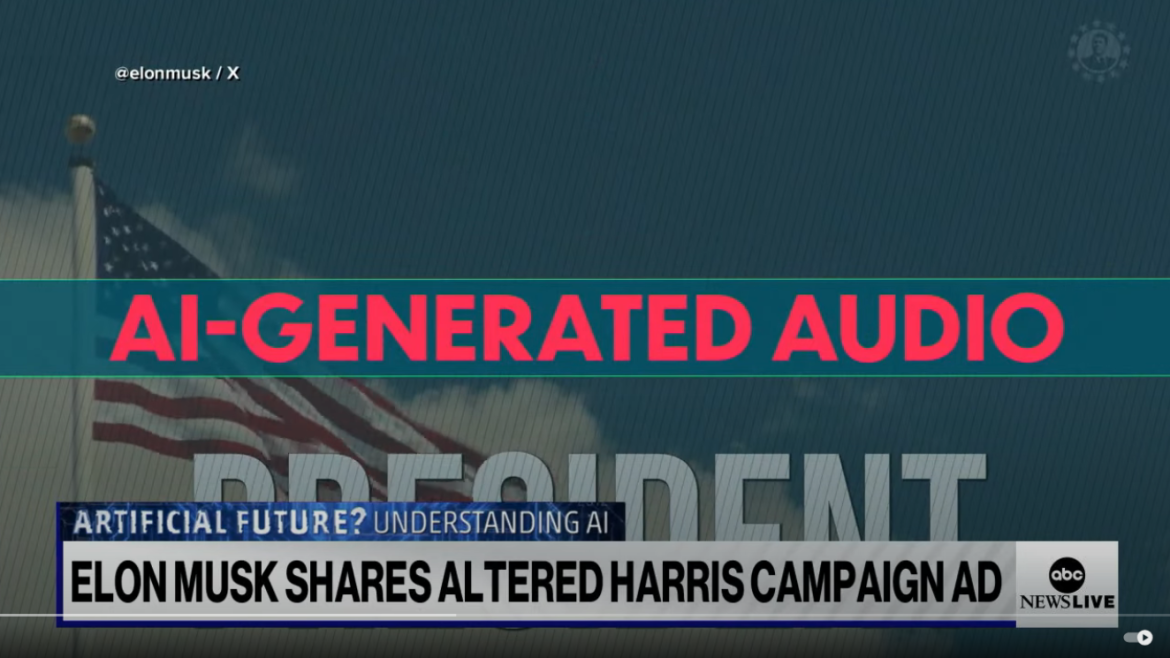California Governor Gavin Newsom announces his intention to sign legislation that would ban AI-generated deepfake political videos, following an incident involving billionaire Elon Musk. The controversy began when Musk reposted a video of Vice President Kamala Harris that appeared to show her as an incompetent candidate for president. Newsom condemned the video, asserting that such content should be illegal.
The video in question, which quickly went viral, was identified as a deepfake—a synthetic media in which a person’s likeness is manipulated using artificial intelligence to create false representations. Newsom’s statement highlights the growing concern over the potential for AI technology to be used in misleading and harmful ways, particularly in the political arena.
“These AI-generated videos pose a significant threat to our democratic process and the integrity of our elections,” Newsom said in a press conference. “We must take decisive action to ensure that deepfake technology is not used to deceive or manipulate voters.”
Elon Musk, known for his outspoken presence on social media, responded to Newsom’s comments by defending the video as a form of parody, which is protected under the First Amendment. “Confirmed: Parody is legal in America,” Musk tweeted, igniting further debate over the boundaries between free speech and the need to regulate misleading content.
The incident has intensified discussions within the California legislature, where multiple bills addressing AI and deepfake technology are currently under consideration. While Newsom did not specify which bill he plans to sign, several proposals aim to tackle the proliferation of deepfakes. These measures include requiring clear labeling of AI-generated content and imposing penalties for the creation and distribution of malicious deepfakes.
One prominent bill, introduced by Assemblymember Marc Berman, seeks to criminalize the use of deepfakes to mislead voters within 60 days of an election. Another proposal by Senator Hannah-Beth Jackson focuses on protecting individuals from non-consensual deepfake pornography and fraudulent impersonation.
Newsom’s promise to enact legislation against deepfake political videos underscores the urgency of addressing the challenges posed by rapidly advancing AI technology. Advocates for the ban argue that deepfakes can undermine public trust, spread misinformation, and influence electoral outcomes.
Critics of the proposed ban, however, caution against potential overreach and the impact on free speech. They emphasize the need to balance the protection of individuals and the democratic process with the preservation of constitutional rights.
As California moves closer to implementing these regulations, the state sets a precedent for how other jurisdictions might address the ethical and legal implications of AI technology. The outcome of this legislative effort will likely influence national and global conversations on the responsible use of artificial intelligence.
With the next election cycle approaching, the urgency to establish clear guidelines and protections against deepfakes has never been greater. The collaboration between lawmakers, technology experts, and civil rights advocates will be crucial in crafting effective and balanced policies.



